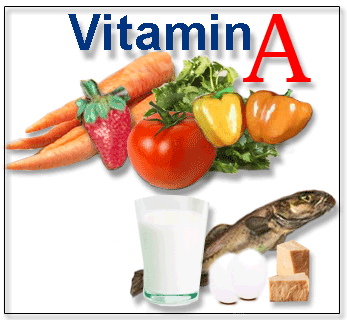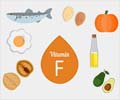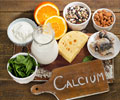Vitamin A
Vitamin A represents a number of related compounds: retinol, retinal, retinoic acid, and a vitamin A precursor beta (b)-carotene. Vitamin A is important for night vision, for fighting infection (body immunity), and for regulating the genes to ensure their proper functioning.

Dietary sources
Orange and yellow vegetables such as carrots, cod liver oil, fortified cereal, cantaloupe, whole milk, spinach, and eggs are examples of vitamin A rich foods.
Vitamin A Deficiency aftermath
Early vitamin A deficiency leads to impaired night vision, and advanced vitamin A deficiency can lead to corneal ulcers and scarring and blindness. In developing countries, vitamin A deficiency is an important cause of blindness among children. These children are also more likely to develop diarrhea and respiratory infections

Why are supplements beneficial?
There is NO evidence that taking vitamin A supplements can prevent cancer or heart attacks. In the ATBC trial, subjects given beta-carotene had higher incidence of lung cancer than subjects not given beta-carotene.
Toxicity
Vitamin A can be toxic in high doses (Usually 10 times RDA). Symptoms of vitamin A toxicity include nausea, dry itchy skin, headache, and loss of appetite, bone and joint pain. High doses of vitamin A can also cause liver toxicity. Elderly people and people who drink alcohol heavily are more susceptible to vitamin A toxicity.

Tips for supplements
Eat a balanced diet and take one multivitamin daily. (Most multivitamins contain 5000 IU of vitamin A, generally in the form of beta-carotene). Additional vitamin A supplements are currently NOT recommended. Pregnant women should not take additional vitamin A supplements without medical supervision. Pregnant women should also avoid skin acne medications derived from natural and synthetic retinoids such as tretinoin (Retin-a), isotretinoin (Accutane), and psoriasis medications such as etretinate and acitretin.

















